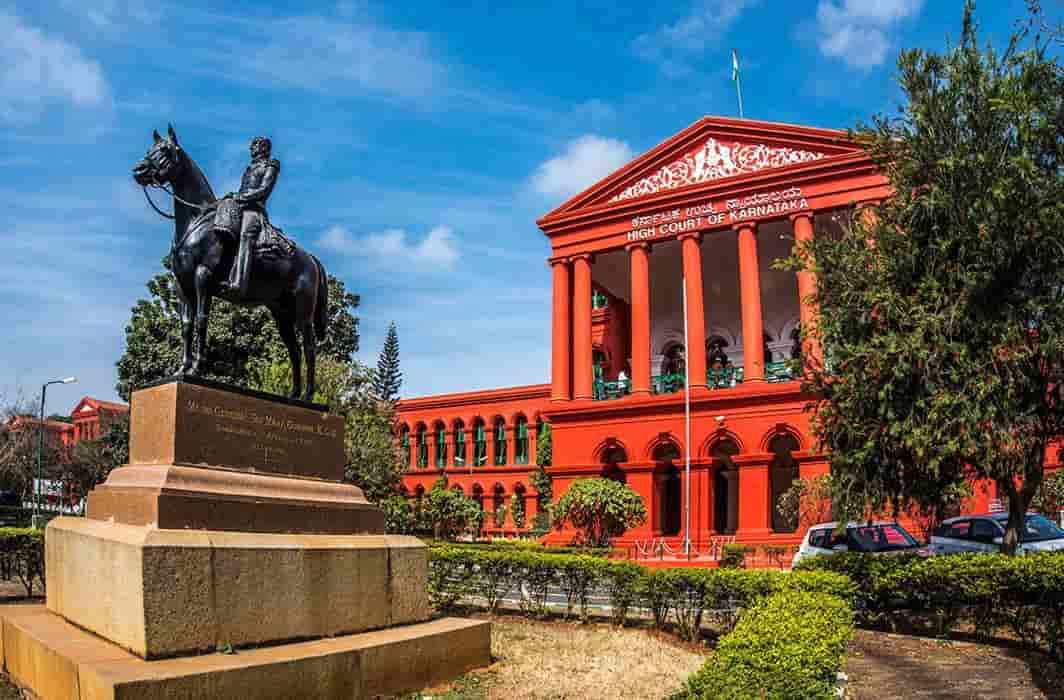The High Court of Karnataka has today issued an interim direction staying the government orders issued on June 15 and June 27 to the extent they imposed ban/embargo on conduct of online classes by the schools from LKG to Class X.
A division bench of Chief Justice Abhay Srinivas Oka and Justice Nataraj Rangaswamy was prima facie of the view that both orders of June 15 and June 27, encroached upon the Fundamental Right conferred by Article 21 and 21A of the Constitution of India. The executive orders issued by the Government under Article 162 of the Constitution can’t take away the fundamental rights under Articles 21 and 21A.
The Court clarified that the order should not be construed to mean that authorities of school have right to make online education compulsory or will have right to charge extra fees for conducting online classes.
However the Court’s interim order should not be construed to mean that :
- The Schools have the right to make online education compulsory;
- The schools have right to charge extra fees for conducting online classes;
- The students who do not opt for online education should be deprived of their normal education as and when the schools are able to start education.
The Court also stated that it was difficult for the Government to derive support from the opinion expressed by NIMHANS, Bangalore.
The High Court of Karnataka had previously directed the Advocate General to place on record and circulate the NIMHANS report, while hearing pleas challenging the ban imposed by Karnataka government on online classes.
The petitioners had submitted before the Court that a complete ban on online classes would violate the right to education under Article 21A of the Indian Constitution.
The Bench had been informed that an expert committee was formed to suggest scientific ways of offering online education, based on which the and the government would take its decision.
Advocate General Prabhuling K Navadgi had informed the Court, that the interim arrangement that was decided will continue till the expert committee makes its suggestions and a final decision is taken by the State government.
Senior Advocate Uday Holla, on behalf of one of the petitioners, challenging the State government orders stated that the Karnataka Education Act, is not applicable to CBSE/ICSE as it is an All India Syllabus and the state government has no powers. The Ministry of Home affairs on June 29, has also passed a resolution allowing online education. On the face of it, the order is illegal.
The petitioners had relied on the Central government guidelines for Unlock 2 that stated that online education and distance learning shall be permitted and encouraged, while the schools, colleges and educational institutions remain closed.
The petitioners had submitted that while COVID-19 may go on for six more months, if children are not educated, only God will help. Only Karnataka has not allowed online classes while online classes are being conducted by everyone across the globe, even in Indian states of like Kerala, Delhi, etc. Its important to look at the plight of children and what will happen to them if education isn’t provided.
“Ultimately parents and school and teachers will do what is necessary. We (Karnataka) are said to the Silicon valley of India and if we don’t do it who will,” Holla said.
According to Advocate Pradeep Nayak, who appeared on behalf of another petitioner, Section 7 of the act is an enabling provision which allows the state government to regulate and does not allow them to ban the education. Therefore under the said section, the state does not have power to pass such orders even against schools not affiliated to CBSE and ICSE board. The order was passed by the state government without giving any explanation and is arbitrary, and violative of Article 21A of the Constitution of India and needs to be struck down.
The Court was informed by the government that it had allowed online classes to be conducted by schools for students of Lower KG to Standard V, for limited hours. The interim arrangement had been made till the government considers the recommendations of the expert committee and issues its final guidelines.
The interim arrangement was made after the Court had observed that the State couldn’t have passed an order to prevent schools under all boards from conducting online classes for students of Lower KG to Standard V, and had asked the State government to come up with a solution or allow the classes for certain hours. This order had come after petitions were filed before the Court challenging the order of complete ban on online classes by state government on June 15.
-India Legal Bureau


